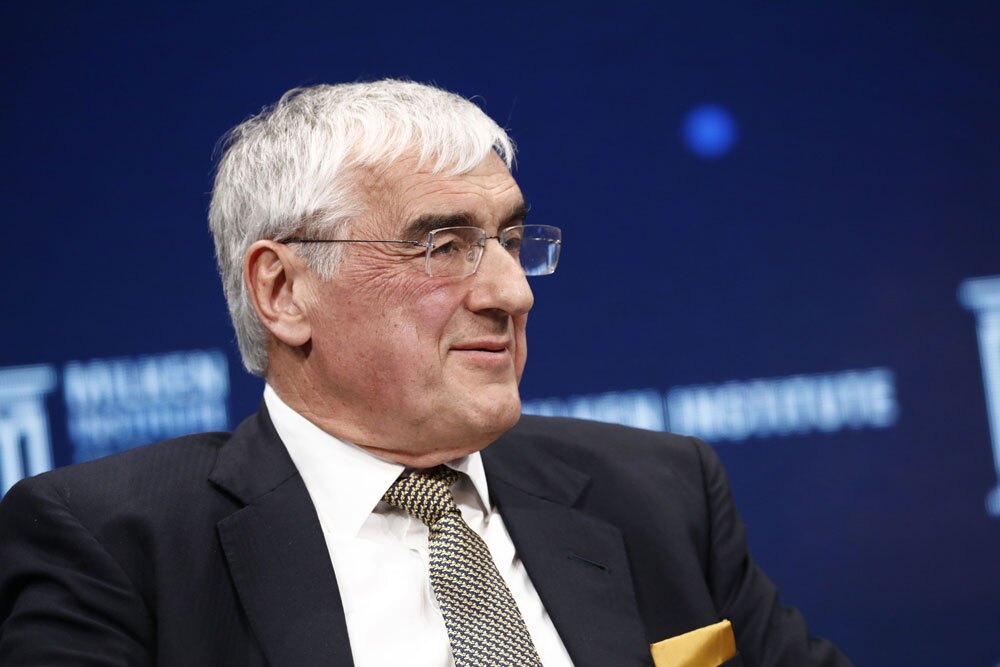London hedge fund firm CQS, which struggled with management turnover, layoffs, and drastic performance losses earlier this year, has made up some of the lost ground in its funds and has told clients it has a plan for getting the firm back on track.
In a letter sent to clients on Tuesday and obtained by Institutional Investor, firm founder Michael Hintze called 2020 “arguably the most turbulent year in financial markets for a generation” and acknowledged that government lockdowns in response to the Covid-19 pandemic have posed massive challenges for the global economy “and in turn, for a number of our funds.” The assets CQS specializes in, namely structured credit and more complex credit instrument, were among those hardest hit, Hintze wrote.
The firm’s flagship CQS Directional Opportunities Fund, which Hintze manages, lost more than 33 percent in March and was down by more than 50 percent through April, according to a Financial Times report, while the CQS ABS Fund lost 43 percent in March alone. But the funds have posted strong gains since then, according to the letter. The ABS Fund has gained 37.2 percent from its March low through the end of October, while another hard-hit fund, the Credit Multi Asset Fund, gained 16.4 percent over the same period — nearly erasing its drawdown.
“I recognize that our clients in these asset classes have suffered significant losses and, with my team, I am working tirelessly to regain investment performance,” Hintze wrote in the letter. “As the crisis hit, we took very deliberate actions to respond to the change in conditions and to make sure that our funds were able to survive the turbulence and, longer term, to potentially capture the developing recovery.”
Those steps included eliminating some non-core strategies in the Directional Opportunities Fund, systematically reviewing every position “in light of the new economic reality,” as well as adding, hedging, and trading some positions, the letter said. Hintze also consolidated the firm’s ABS management team under a single chief investment officer, Jason Walker, a ten-year veteran of the firm who had been co-CIO of ABS since 2016.
“As the crisis hit, Jason and his team took action to secure the stability of the ABS Fund and again to position it to capture the recovery,” Hintze wrote. “As part of this, the team lightened the ABS Fund’s hedges. This has been reflected in the strong returns posted during the market recovery.”
Hintze said the firm’s multi-asset credit team, headed by Craig Scordellis, added four new hires, with two in investment-grade credit, one in high yield, and one in loans. Finally, Hintze said the firm had created a new senior partners’ group to help the board develop strategy, “with enhanced senior partner equity participation.” The group will include Hintze, Walker, Scordellis, and portfolio manager Prakash Narayanan, among others.
CQS declined to comment.
Earlier this year, the firm’s chief executive Xavier Rolet stepped down after just one year on the job. The firm also cut at least 50 jobs as part of an overhaul this summer, according to a Bloomberg report.
[II Deep Dive: Michael Hintze’s CQS Is Experiencing a Nightmare]
Hintze said in Tuesday’s letter that while the firm was “extremely upset at having to come to clients with the early-year losses” in the Directional Opportunities and ABS funds, it has posted gains in other, smaller strategies. One of those is the $340 million CQS Global Relative Value Fund, which has gained 39.4 percent this year, according to the letter. A convertible arbitrage fund the firm manages has gained 9.7 percent, while a long-only convertibles fund has gained a little more than 8 percent.
This year’s troubles mark a rare performance setback for Hintze, who founded CQS in 1999. Last year he personally made $350 million, ranking number 21 on II’s Rich List, the annual ranking of the highest-earning hedge fund managers. Hintze has qualified for the ranking six times.
Thanks to the performance gains since March, the firm’s assets now stand at $18.7 billion — up 35 percent from three years ago, according to the letter, albeit down from the $20 billion it was managing earlier this year. Hintze said the firm is looking to launch new funds in the ABS, collateralized loan obligations, and regulatory capital markets areas and is also looking to launch a new total return credit strategy for European investors with $75 million of seed capital. The firm also just won a €350 million ($415 million) mandate from an institutional client to manage a convertibles strategy, the letter said.
“We have realigned processes, refocused portfolios, and refined the alpha engine,” Hintze wrote. “People are energized.”






